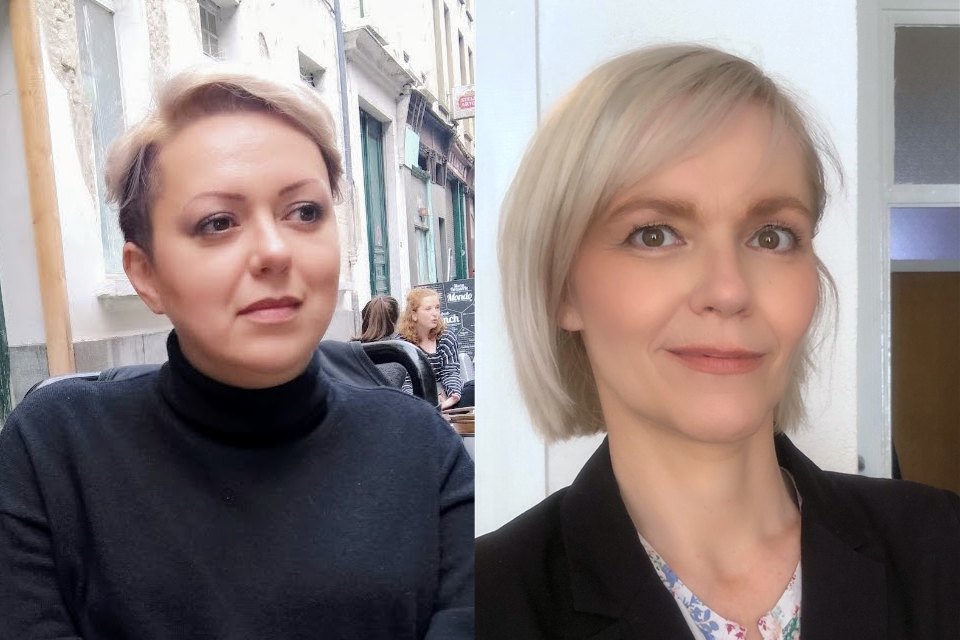Women from marginalized groups in Bosnia and Herzegovina are facing heightened challenges during the pandemic
Date:
With the onset of the COVID-19 crisis, not all women had equal access to violence protection systems. Women from marginalized social groups were not only at risk of experiencing violence during the pandemic, but also were under the risk of being left behind when many state services, such as police, health, social protection, were being suspended or restricted because of the crisis.

The various measures that have been put in place by the government of Bosnia and Herzegovina to curtail the spread of infection have had a tremendous impact on access to services by Roma women and girls, persons with disabilities, women living in rural areas, elderly women and those who had suffered war trauma in the past.
Even before the COVID-19 crisis, this problem was captured in the research “Essential services: analysis of the access to support services (health, police and justice and social services) for women belonging to marginalised groups who have experienced violence,” developed in 2019 under the regional programme on ending violence against women “Implementing Norms, Changing Minds,” funded by the European Union. The research pointed out intersecting obstacles faced by Roma women, rural women, elderly women, internally displaced women, women returnees and women with disabilities in accessing protection services against domestic violence. According to the research, these groups of women do not trust that local institutional service providers are able to address their needs, and they often don’t have information on where to seek assistance.
On the other hand, local service providers claim they “treat everyone equally” rendering marginalized groups of women even more vulnerable. However, with the COVID-19 crisis and the accompanied social distancing rules, self-isolation, limited movement as well as economic hardships, the challenges of women from marginalized groups in accessing protection from violence were highlighted even more.
Tanja Mandić Đokić, sociologist and activist for women with disabilities, emphasizes that independent of COVID-19, there are no specialist services for women with disabilities, except for peer-to-peer support services provided by some of public organizations reaching out to these women. “The limited services provided for men and women with disabilities have been stopped or significantly reduced. Women with disabilities are therefore left without any assistance, except from their family members, and without transportation,” says Ms. Mandić Đokić.
The system of protection from violence in Bosnia and Herzegovina does not contain a specific regulation when it comes to protection from violence against marginalized groups. For example, the legislative framework does not consider additional vulnerabilities of women with disabilities due to dependability on family members. Also, the legal framework does not take into account Roma women's challenges in acquiring health insurance.
Nerina Čevra, Executive Director of the Center for Inclusive Democracy, says that lack of information about available services, distrust in the system of protection and lack of access to primary care services were exacerbated during the COVID-19 crisis. “The entire health care system has placed the focus exclusively on dealing with the virus. Centers that were already inaccessible are even more so in the times of crisis. Lack of educated staff and awareness of the need to look at women who experience violence in a comprehensive manner is even more on the back burner for the institutions as they fight the pandemic.“
The research concludes that the less information women have, the less trust they have in institutions. Institutions need to acknowledge that necessary information has to be provided in accessible formats for people who belong to vulnerable groups. Some options include using enlarged fonts, Braille, websites, printed materials, bulletin boards, audio information, and information in minority languages.
“Women with hearing impairments had troubles with access to information, as not all TV news featured translation to sign language at a time when new information on the pandemic was crucial. Making sign language interpretation mandatory at times of crisis would be very helpful,” adds Ms. Mandić Đokić.
Nerina Čevra thinks that it is important for primary health care centers, which have triage locations, to confidentially speak with women and use the triage time to identify and support women who potentially suffered violence. “As this crisis is likely to be present for some time, and we are developing new and revising protocols and diagnostic tools, it is crucial to include women from marginalized groups as well,” points out Nerina Čevra.
She adds that the possibility of using applications and/or social media tools would help women report instances of violence in a safe and confidential manner.
Civil society organizations representing women from marginalized groups have increasingly warned that when designing and imposing measures during a crisis, relevant authorities must take into consideration the needs of those most severely affected by the situation. Specialist services must be inclusive and accessible to all, so that no one is left behind, especially during COVID-19 when violence against women is also on the rise.
“Support to women with disabilities and their access to justice and protection needs to become mainstream at non-crisis times. It has to stop being a side question that is solved when the ‘basic’ questions are solved,” concludes Tanja Mandić Đokić.